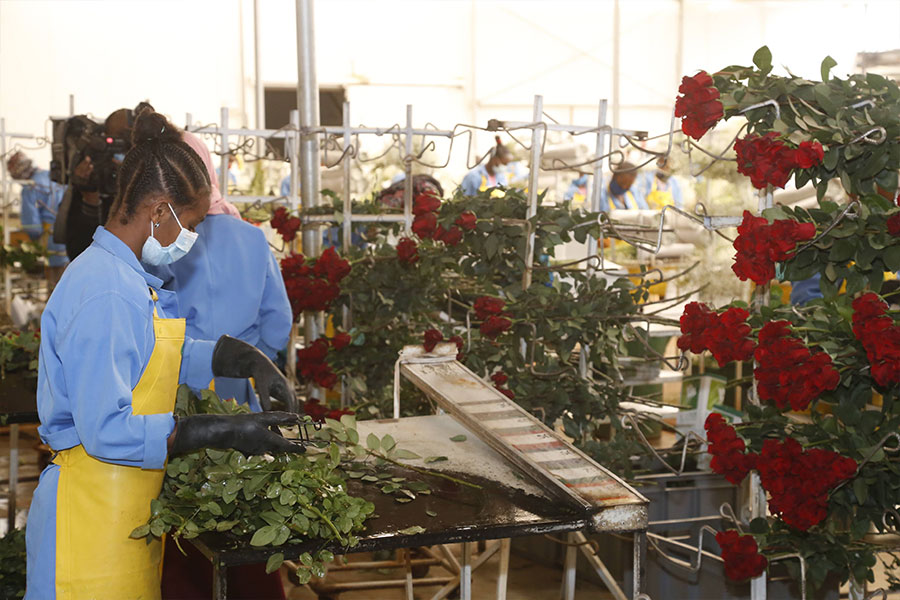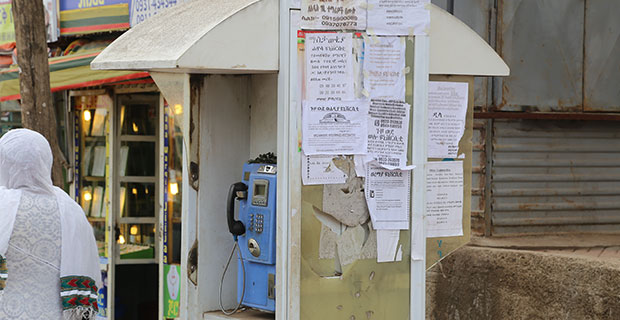
Radar | Nov 11,2023
May 21 , 2022
By TSION HAILEMICHAEL ( FORTUNE STAFF WRITER )
Trade regulators have warned exporters to immediately ship oilseeds and cash crops they claim to have discovered stored at warehouses in Addis Abeba and other states.
The authorities are pushing for the export of 235,000tns of cash crops, which they say were found in warehouses belonging to 162 traders and exporters. It is not the first time for them to issue stern warnings. In March this year, they announced discovering 60,000tn of cash crops at warehouses owned by 105 exporters following investigations in Addis Abeba and Adama.
Oilseeds account for two-thirds of the latest batch found in storage. The discovery has pushed the Ministry to amend directives that regulate the trade and export of oilseeds. Signed by Gebremeskel Chala, minister of Trade and Regional Integration (MTRI), the amendments compel exporters to ship their crops within a month.
"The government will confiscate the stock unless they export before the deadline," Mesfin Abebe, director of agricultural product export at the Ministry, told Fortune.
Officials' reasoning for the ultimatum is the perceived losses in foreign currency from a shortage of exports. Oilseeds place high on the list of top forex earning commodities, accounting for nearly 12pc of the 3.6 billion dollars in export revenues last year.
Total export revenues over the three quarters of the year were recorded at 2.95 billion dollars, with agricultural commodities accounting for over two-thirds. The value of coffee export exceeded the one billion dollar mark, almost doubling what the authorities had planned earlier the year. Earning close to a quarter of a billion dollars, the export of oilseeds almost reach the target.
However, the total revenues from exported items were 16pc short of what Gebremeskel and his colleagues at the Trade Ministry had planned. Replacing Melaku Alebel, now minister of Industry, Gebremeskel had previously served as director-general of the Micro & Small Enterprises Development Agency.
Gebremeskel's officers found 7,000qtl of soy bean two weeks ago at a warehouse in Adama town, nearly 100Km southeast of the capital. It is owned by Jemal Seid Adem General Import & Export.
Incorporated 14 years ago, the company exports 50,000tn of agricultural commodities such as oilseeds, pulses and spices each year, mainly to India and Pakistan, earning close to two million dollars. Jemal Seid, the general manager, contends a third of the crops belong to other exporters, which bring their commodities to his company for processing. The warehouse is equipped with cleaners, stoners and gravity separators that process the crops before shipment.
“We've no problem with exporting our stock,” said Jemal. “But it needs time to process agricultural commodities before shipping.”
He disclosed his company is facing supply shortages, particularly when it comes to oilseeds such as sesame. Other exporters have recently echoed similar concerns.
The militarised conflict in the country's north, where 90pc of sesame production comes from, has had a devastating effect on supply. Most of the 369,000hct of land covered by oilseeds is located in the western regions of the Tigray Regional State, including Humera and Welqayit, and central and west Gonder of the Amhara Regional State. Close to 300,000 small-scale farmers harvested 3.6 million quintals of sesame annually. However, productivity is falling though it is difficult to come by figures to show the extent of the decline. Earlier this year, regional authorities reported that 300,000hct of land in the Amhara Regional State remains unploughed due to the war.
Based in Adama, Hufsan General Trading, a company incorporated a decade ago, was "caught" with 6,000qtl of sesame at its warehouse. Hufsan ships 200 containers of the cash crop each year. Through contract farming agreements, the company started with 10 million Br capital and sources sesame. It had prefered to buy agricultural commodities directly from local markets or through the Ethiopian Commodity Exchange (ECX), according to the General Manager, Selim Muktar.
“The poor quality forced us to turn to contract farming," he told Fortune.
To Selim's disappointment, neither is the global market as lucrative as it once was.
“Exporting sesame for more than the minimum threshold set by the government is becoming difficult," he said.
The threshold he referred to is 1,685 dollars a tonne. Since 2020, domestic prices for sesame have increased, while the cash crop fetches lower values in overseas markets. Exporters say they have been buying the oilseed for 5,000 Br a quintal and selling it for 4,000 Br.
Experts warn the problems will persist as long as a surplus in production does not drive the export of agricultural commodities. They also urge the authorities to focus on more urgent issues, such as curbing illicit and contraband trade.
"The need to generate foreign currency is the major pushing factor," says Atlaw Alemu (PhD), an economist lecturing at the Addis Abeba University.
PUBLISHED ON
May 21,2022 [ VOL
23 , NO
1151]

Radar | Nov 11,2023

News Analysis | Apr 09,2022

Radar | Jul 24,2021

Fortune News | Mar 17,2021

Year In Review | Sep 10,2021

Dec 22 , 2024 . By TIZITA SHEWAFERAW
Charged with transforming colossal state-owned enterprises into modern and competitiv...

Aug 18 , 2024 . By AKSAH ITALO
Although predictable Yonas Zerihun's job in the ride-hailing service is not immune to...

Jul 28 , 2024 . By TIZITA SHEWAFERAW
Unhabitual, perhaps too many, Samuel Gebreyohannes, 38, used to occasionally enjoy a couple of beers at breakfast. However, he recently swit...

Jul 13 , 2024 . By AKSAH ITALO
Investors who rely on tractors, trucks, and field vehicles for commuting, transporting commodities, and f...

Oct 18 , 2025
The political establishment, notably the ruling party and its top brass, has become p...

Oct 11 , 2025
Ladislas Farago, a roving Associated Press (AP) correspondent, arrived in Ethiopia in...

Oct 4 , 2025
Eyob Tekalegn (PhD) had been in the Governor's chair for only weeks when, on Septembe...

Sep 27 , 2025
Four years into an experiment with “shock therapy” in education, the national moo...